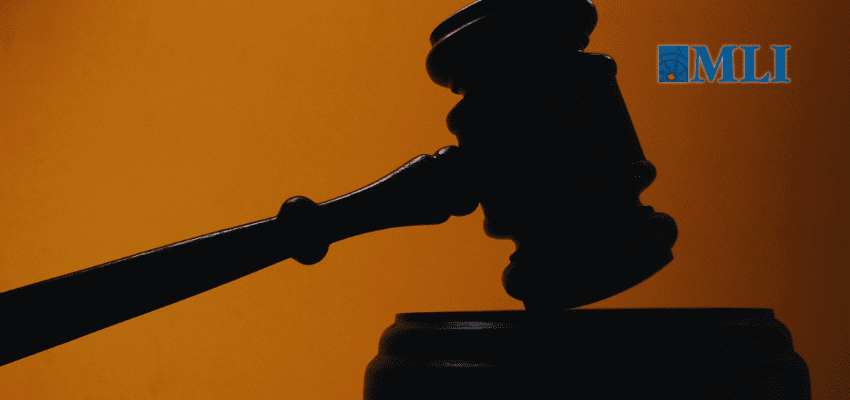This article originally appeared in the National Post.
By Andrew Kirsch, September 23, 2024
Testifying in late August about a terror plot thwarted in July, Minister of Public Safety Dominic LeBlanc commended the intelligence and law enforcement services for their efforts. “This is the way that the investigative and national security system should work,” LeBlanc said. But in the hearings, he faced questions about the immigration vetting process and how two alleged terrorists, both born abroad, were able to get into Canada, and one receive full Canadian citizenship, given their alleged ISIS connections.
In July, the RCMP arrested Ahmed Fouad Mostafa Eldidi, 62, and his son Mostafa Eldidi, 26, for allegedly being “in the advanced stages of planning a serious, violent attack in Toronto.” The hearings also heard allegations that the senior Eldidi, who obtained Canadian citizenship just before his arrest, may have appeared in a 2015 ISIS propaganda video dismembering a human body.
These developments threaten one of Canada’s main accomplishments — an immigration system widely accepted across the political spectrum and society. While more effective front-end screening is important, maintaining our national consensus on immigration will also require we can effectively deal with those who sometimes slip through the vetting process. That requires enforcing the laws that exist.
Canada has benefited from being an accessible, welcoming and inclusive destination for immigrants, and immigration is widely supported by all mainstream parties. The Eldidi case and others like it are hurting the public’s views on immigration. The Liberal government’s plan to take in 5,000 Gazan refugees has been met with concern from some quarters. Canada’s ability to properly vet individuals is in question. This would be less of a concern if we had confidence in our ability to remove those found to be inadmissible under immigration laws and revoke the citizenship of those who hid misdeeds during the acceptance process.
Information available in the screening process is often limited to what the applicants willingly disclose. It does not appear the Eldidi video was available in the vetting process. A representative from the Canada Border Services Agency (CBSA) stated, “We made the best decisions that we could at that moment in time based on the information we had.” The government has advised that it is looking into whether Eldidi’s citizenship could be revoked. In 2015 the Conservative government passed Bill C-24, also known as the Strengthening Canadian Citizenship Act. It gave authorities the power to revoke the Canadian citizenships of people convicted of terrorism, espionage or treason — provided they were also citizens of a second country. In 2016 the Liberal government repealed provisions of the bill.
There are still conditions where citizenship can be taken away, for instance if an applicant is guilty of “false representation, fraud or knowingly concealing material circumstances” during the immigration process. However, Canada struggles to remove such individuals when they are detected. In February 2024, the CBSA released figures that showed that of 14,609 people who were sent letters informing them they were facing deportation between 2016 and May of last year, 9,317 were still in Canada.
Even national security grounds have proven insufficient in some cases. Since 1978, Security Certificates under Canadian immigration law had been a tool to detain and deport permanent residents and foreign nationals inadmissible to Canada for reasons of national security. In the early 2000s, the certificate cases were subject to increasing litigation. The accused claimed they would be tortured if deported; the national security community fought to protect the intelligence that backed the certificates from release.
Enforcing criminal and national security grounds for removal is an important pillar to maintain confidence and cohesion in our immigration system and citizenship process. Those who commit fraud or lie on their applications, pose an ongoing national security risk, support listed terrorist organizations or conduct terrorist acts should potentially lose their citizenships; any issued removal order should result in their leaving.
LeBlanc’s testimony is right: our national security infrastructure ultimately prevented a heinous crime. But it was a close call. Strengthening the vetting and enforcement functions in our immigration system will push that threat even further away.
Prime Minister Justin Trudeau famously said, “As soon as you make citizenship for some Canadians conditional on good behaviour, you devalue citizenship for everyone.” Our citizenship does indeed have profound value. Failure to keep terrorists from attaining that privilege and failing to deport those who have severely dishonoured it devalues that citizenship. Our national security vetting process will never be perfect. For Canada to continue to maintain widespread support for its immigration system, we should be better prepared, ready, and able to enforce the law against those who violate it.
Andrew Kirsch is a former intelligence officer with the Canadian Security Intelligence Service (CSIS) and a contributing writer with the Macdonald-Laurier Institute. He is the founder of Kirsch Consulting Group (KCG).






